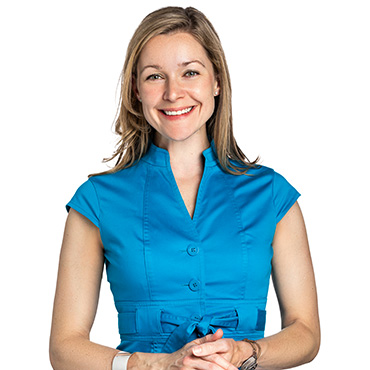
Talk of permanent post-COVID-19 changes abound. Some changes are real and predictable. At Escalent we are talking to company leaders in multiple industries and are hearing about concrete changes they’re enacting now that will affect business in the future. Outside of these examples, the forecasting is largely guessing. It’s alluring but also folly. I’ll play along and make a sweeping declaration that we’ll all be surprised by how unsurprisingly similar our collective lives will seem on the other side of this. I expect life will appear to fit what we once called normal much more closely than we might believe right now. That’s how we’ll know it’s over—the cadence of the day, week and month will again feel familiar.
However, when I think about the biggest lasting change, the top contender is internal rather than external. If we take both nature and nurture as truth, right now we are changing and learning about ourselves. Our self-identity and what we value is a train of perpetual forward movement. We might regain our regular Tuesday schedule, but we can’t unlearn something about ourselves. And if research serves to measure our rational understanding of humans and their relationship to others—products, brands, people—as well as latent-yet-unrealized attitudes and behaviors, it’s important to recognize both are being impacted right now.
For more than 10 years I’ve thought that my husband and I fall in roughly the same place on a number of spectrums. Some couples work because opposites attract. We share hobbies, cleanliness standards, parenting philosophies, thoughts on religion and investment risk tolerance. And I thought notably, we shared the same levels of introversion vs. extroversion. This turns out to be incorrect. Recently I remarked on how I can’t wait to get back out into the world. I want to put myself in the busiest, liveliest part of the city and cram into a crowded restaurant and feel the vitality. After a beat, my husband admitted he could live like this, sheltering in place, for the rest of his life. Laughter followed, along with a poignant moment. We aren’t as similar as we thought on where we get our energy. That’s okay, but it is news.
We’re all likely familiar with the lasting effects of the Great Depression. My grandmother was the classic example: a massive hoarder because, you never know. It’s too early to have the answers, but I can pose questions for consideration:
- How will our scars appear?
- How will we act as our new selves and with our new knowledge about ourselves?
- How will these changes emerge in our research outcomes?
- What do we need to do differently to ensure that changes that matter do show up in our research?
Within financial services research, we of course need to consider factual changes such as adjusted asset levels, employment status and retirement time frames. The next-generation financial advisors who were getting docked for not experiencing a down market have now seen a dramatic market event, even if the market itself is writing history with its disconnect from economic activity. Defined contribution plan metrics need to consider distributions, loans and decreased contributions now more than ever, as the definition of an “active” participant may have evolved. The 80%–90% pension funding status (Cogent Syndicated 2020 US Institutional Investor Brandscape) will be under pressure even with positives related to funding requirements.
We also need to consider how attitudes and emotions have changed. Our expectations and fears have been recalibrated during this pandemic—what we seek, what we fear, and by how much. How have financial goals altered, and what are reasonable time frames to achieve them? After having more intimacy with our families and seeing the fragility of life more closely and more often, what do we care about most, and how do we put that into action with our finances?
These examples scratch the surface, but they adhere to an appropriateness test that we must apply moving forward to make sure we’re accounting for the changes that are taking place within ourselves: Are we asking the right things of the right people at the right time? And perhaps most importantly, are we allowing room for the right range of possible responses, recognizing that they may differ from the past?
If you are trying to figure out how to do research the right way and how to frame the right questions in this new environment of change, we can help. Send us a note to set up a call with one of our financial services experts.









